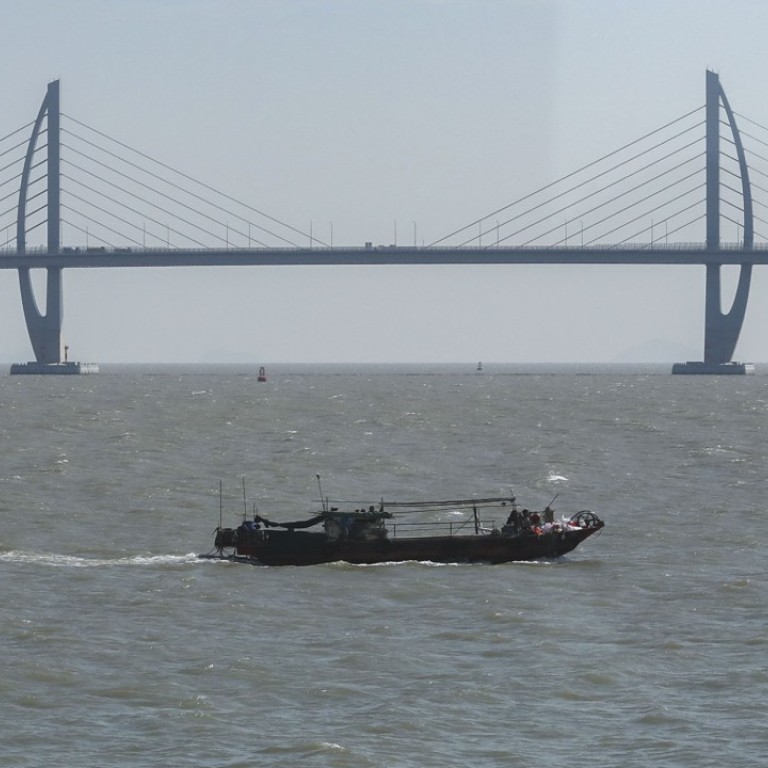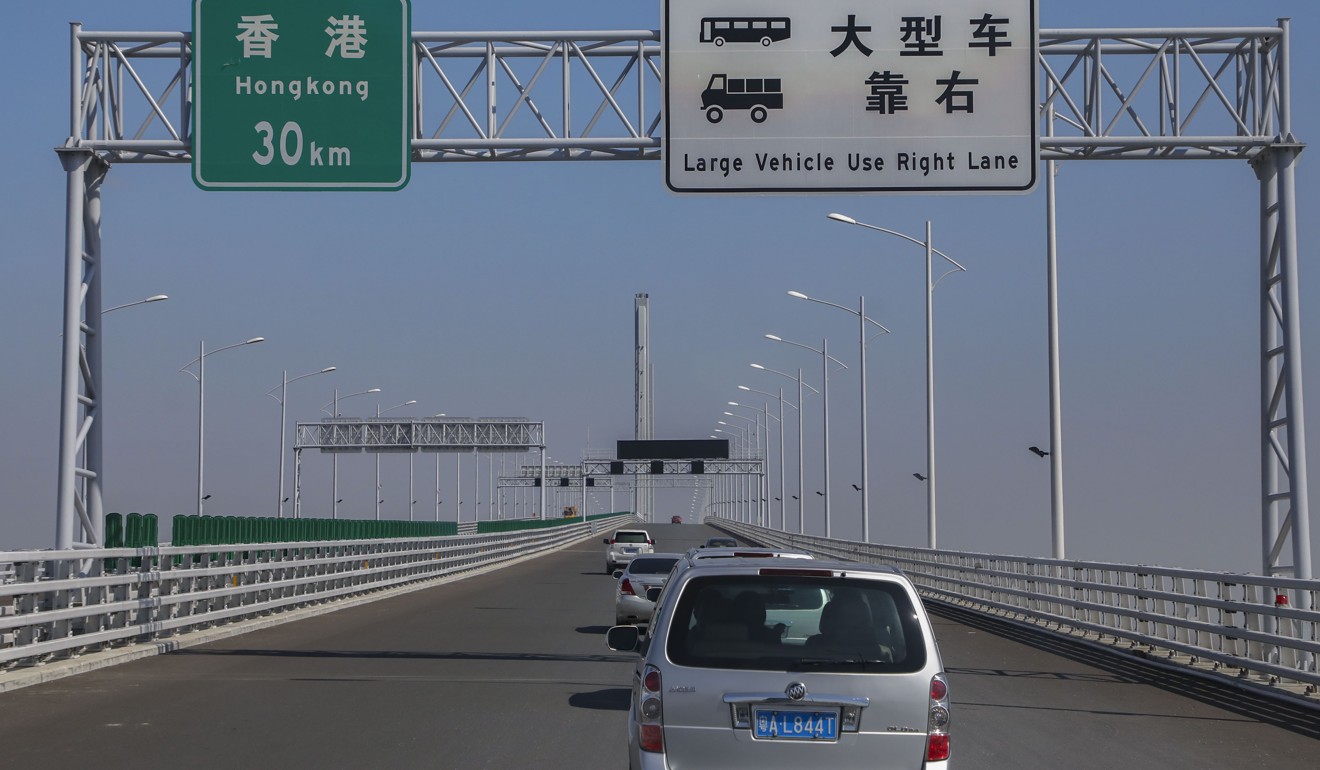
Lower toll for Pearl River Delta mega bridge preferred option at hearing
Most attendees at public hearing on pricing proposals in favour of cheaper option
Most of the representatives from Hong Kong, Macau and Zhuhai told the Guangdong authority that they preferred a lower toll for a mega bridge connecting the three cities at a public hearing in Zhuhai on Thursday morning.
Meanwhile, tourism leaders from the two special administrative regions and nine Guangdong cities forming the Greater Bay Area at the Pearl River Delta pledged for synergy of tourism resources in the area.
Among the 26 representatives who spoke at the tolls’ public hearing, 18 supported the proposal to charge cross-border coaches 200 yuan (US$30.40) per ride via the bridge, while only three were in favour of the other plan, which charges both cross-border coaches and shuttle buses 450 yuan per ride, according Alan Chan Chung-yee, chairman of a major cross-boundary bus service, ChinaLink Express, and one of five Hong Kong representatives.
First traffic to cross Hong Kong-Zhuhai-Macau bridge in 2018, according to chief secretary
Before the hearing, the economic planning authority of Guangdong put forward two pricing plans, which propose different rates for buses.
Under both plans, however, private vehicles and taxies will be charged 150 yuan, cargo trucks 115 yuan and ordinary trucks 60 yuan per trip between the mainland and the two special administrative regions.
Five of the 26 representatives raised other proposals, Chan said.
The Hong Kong-Zhuhai-Macau Bridge Authority said in a statement that some representatives suggested reducing the fare for buses from 450 yuan per ride to 300 yuan, while trucks should be charged at different rates according to their capacities.

The public hearing organised by the Guangdong Development and Reform Commission selected 15 representatives from the three cities – each was represented by five individuals randomly drawn from the applicants. Lawmakers and political advisers of Guangdong, officials, scholars and highway managers were also invited, bringing the total number of participants on the list to 27.
Foreign worker dead after fall from Hong Kong-Zhuhai-Macau bridge
The multibillion-dollar project involves a 42km Y-shaped expressway expected to be finished by the end of 2017 and open to traffic in 2018. Since the project kicked off in 2009, the bridge has been blighted by delays, fatal workplace accidents and budget overruns.
In a latest report from the mainland, the construction of the bridge’s major body has cost 9.95 billion yuan more than expected, Hong Kong’s Transport and Housing Bureau said.
Of the 9.95 billion yuan, 5.35 billion yuan would be financed by a bank loan and the bridge authority would be responsible for repaying the loan, the bureau added.
The bridge authority, a project managing body jointly established by the governments of the three sides, said on its website that tolls would be charged for repayment of the loan, and the two pricing proposals were designed according to a repayment period of 30 years.
Hong Kong to pay HK$2.36 billion share of mega bridge project’s HK$11.7 billion cost overrun
In April 2009, a group of banks led by Bank of China were chosen to loan a total of 22 billion yuan for the bridge project. The authorities have not made clear if the 5.35 billion budget overrun would be covered by the 2009 loan or would require additional money.
Chan supported charging cross-boundary buses a lower rate because he believed the government had been underestimating traffic volumes on the bridge.
He anticipated more Hong Kong companies would move their logistics departments to Zhuhai for lower rents and cheaper labour. Visitors hoping to tour the two special administrative regions in one go or to fly from Hong Kong’s international airport would also make the bridge more popular.
Eleven representatives from tourism associations in the Guangdong-Hong Kong-Macau Bay Area signed a trade cooperation agreement on Thursday.
The pact comprises four major areas, including driving the development of tourism resources in the region for mutual benefits; jointly developing multi-destination tourism products and promotions; and holding regular meetings and visits for exchanges and collaboration.
Secretary for Commerce and Economic Development Edward Yau Tang-wah said the upcoming launch of the Hong Kong-Zhuhai-Macau Bridge and the high-speed rail link to Guangzhou next year would enhance connections and collaboration between the Bay Area cities.
“These infrastructures would also enable Hong Kong to consolidate its role as a core district for the ‘one-journey multi-stops’ development model and an international tourism hub,” he said.
The Guangdong authority said it would summarise the representatives’ opinions and a “refined” plan of tolls would be submitted to the provincial government for approval.
The date when final prices will be announced is yet to be confirmed.


